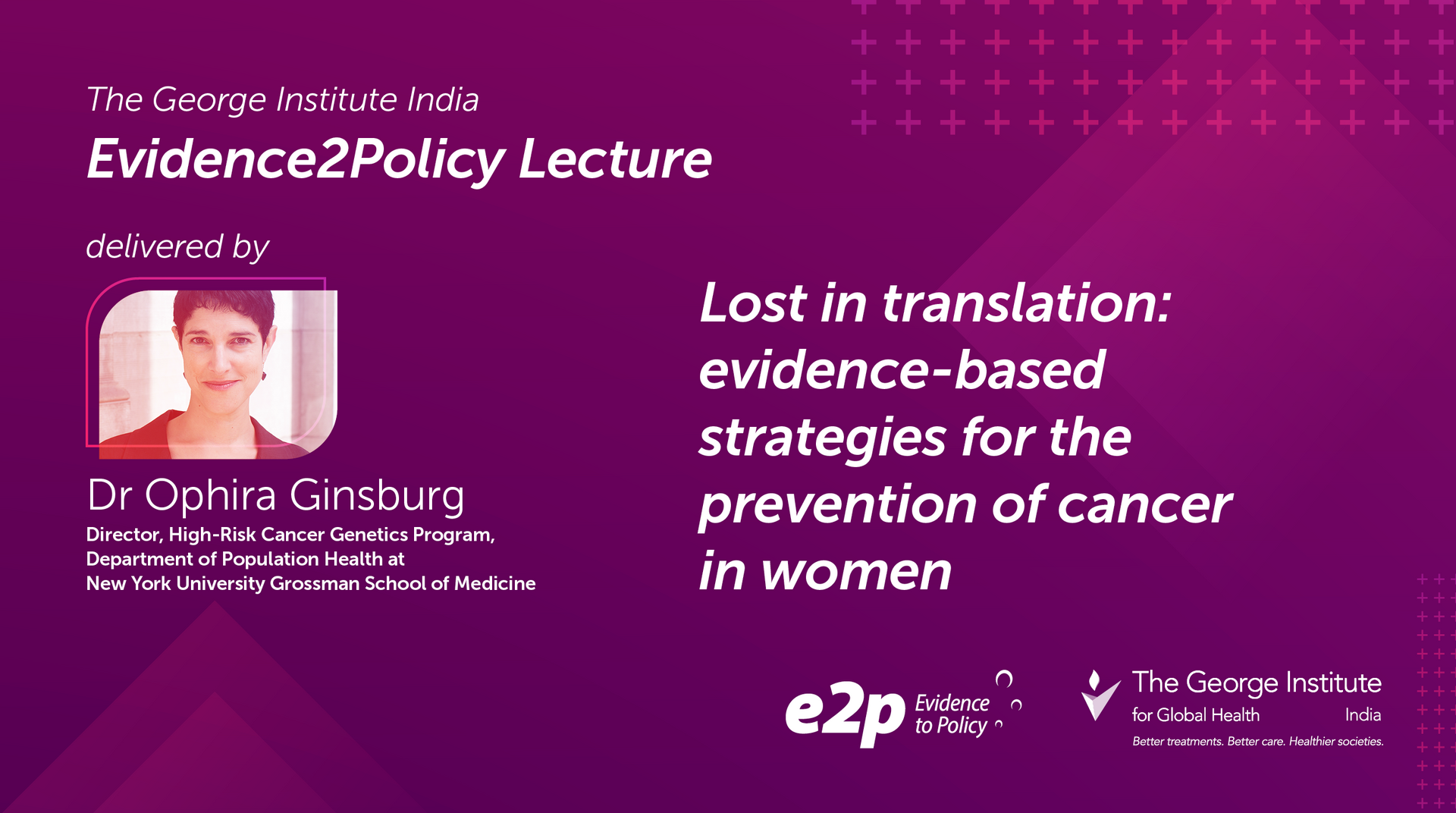
Highlights from the 4th annual Evidence2Policy lecture
Lost in translation: evidence-based strategies for the prevention of cancer in women by Dr. Ophira Ginsburg
The George Institute for Global Health, India organized its annual Evidence2Policy lecture on 10th December 2020. Each year we host this lecture to spark a conversation around bridging the “know-do gap” in public health policy implementation and it is delivered by a leading global researcher.
This year’s lecture was delivered by the renowned Dr. Ophira Ginsburg, Director, High-Risk Cancer Genetics Program, Department of Population Health at New York University Grossman School of Medicine. She is also the Elsa Atkin Distinguished Fellow at the George Institute. Her talk focused on the intersection of two very important topics in public health - cancer and women’s health. She shared her perspectives on the impact of evidence-based cancer prevention and control strategies for women, especially in low- and middle-income country settings.
The lecture was followed by a very interesting fireside chat moderated by Dr. Neerja Bhatla, Professor, Department of Obstetrics & Gynaecology, All India Institute of Medical Sciences (AIIMS), New Delhi, India.
Dr. Ginsburg’s lecture stated startling global cancer statistics (2018) from the International Agency for Research on Cancer. She stated that 70 percent of cancer related deaths occurred in Asia, Africa and Latin America with an expected 70 percent increase in cancer cases in low- and middle-income countries (LMICs) in the next 20 years. The evidence suggested that women living in LMICs were at an increased risk of breast and cervical cancer and the mortality rates too were extremely high for these women. Additionally, inequity is a cross cutting aspect for women’s cancers.
Dr. Ginsburg welcomed WHO’s recent launch of the Global Strategy to Accelerate the Elimination of Cervical Cancer, which represents the first time the world has committed to eliminate a cancer. According to Dr Ginsburg, all efforts must be aligned and accelerated in order to meet the elimination targets. She suggested scaling up vaccination, screening and treatment of pre-invasive and invasive cervical cancer. This in turn would reduce cervical cancer mortality by almost 99 percent and save more than 62 million women’s lives.
To sum it up Dr. Neerja in her fireside chat asked some very critical and thought-provoking questions to Dr. Ginsburg.
Watch the event recording here:


